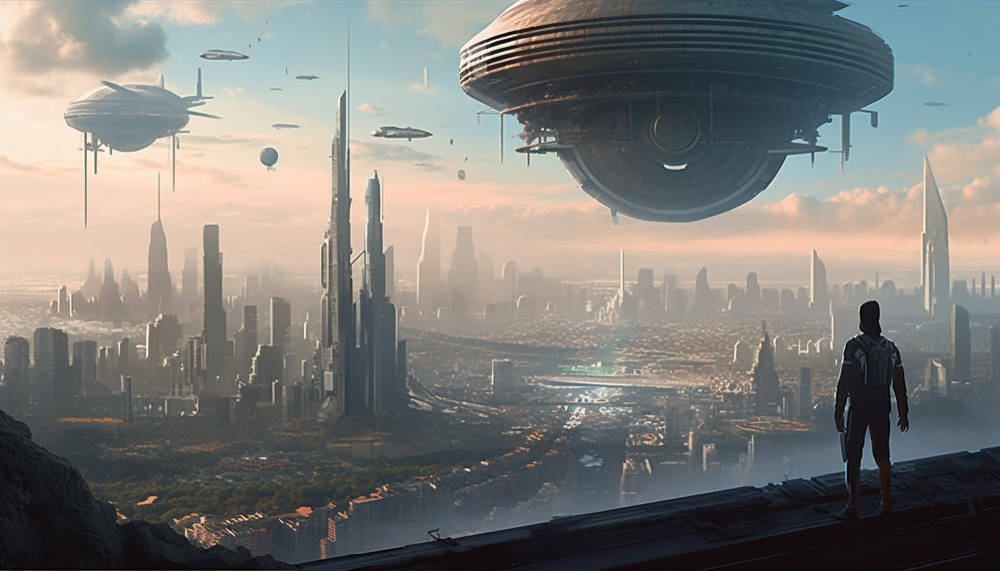Framing the Unreal: Exploring Graphic/Visual Science Fiction and Fantasy, Ca' Foscari University of Venice, Italy - 13-15 November
Framing the Unreal
Exploring Graphic/Visual Science Fiction and Fantasy
An international conference organized by the Laboratorio per lo Studio letterario del fumetto at Ca’ Foscari University and the International Comparative Literature Association Standing Research Committee on Comics Studies & Graphic Narrative
Ca' Foscari University, Venice, ITALY - 13-15 November 2024
Andrew Milner, in Locating Science Fiction, argued that “the category SF applies [...] across a whole range of forms, from the novel and short story to pulp fiction and the comic book, from radio serial and television series to drama and film, from examinable set text to rock album”. One might legitimately add video games, toys, and role-playing games to this list, so that we may envision a multi-media continuum through which the SF imagination spread all over the world. Fantasy seems to be endowed with a similar power to infiltrate (one might even say “invade”) many different media. Moreover, the interaction and hybridization of SF and F has proved to be an increasingly relevant trend, that has produced remarkable comics asking for academic attention in a framework that is aware of the whole SF context and the studies devoted to the fantastic in general.
Academia has paid little attention to science fiction and fantasy in comics. But the growing corpus of graphic narrative secondary literature continually offers more materials concerning SF/F comics, which are undoubtedly a vast territory for textual exploration. One might e.g. consider the diffusion of superhero comics, which—be they of DC Comics or Marvel descent—have always incorporated typically SF/F elements in their stories (Superman being, as we all know, an alien from planet Krypton, and Doctor Strange being a sorcerer).
It is thus high time to devote a large-scale event to the discussion of SF/F in comics; therefore, the ICLA Standing Research Committee on Comics Studies and Graphic narrative has decided to celebrate its 20th anniversary by organizing a conference to be held at Ca' Foscari University of Venice, Italy. We look forward to receiving panel and presentation proposals along these lines of research:
-
Critical/theoretical approaches (How should SF/F comics be analyzed? What “traditional” critical methodologies focusing on purely verbal literature could be applied to comics? Do we need specific instruments or literary analytical tools? How might conversations like Afrofuturism and Techno-Orientalism play out in such discourses?)
-
Transmediality and comics: adaptations, remediations, rewritings, and other intertextual retellings.
-
Feminist studies in science fiction and their impact on comics. How do we address the questions of race, class, gender, and the environment? Is this an opportunity to disentangle critical strains in science fiction and fantasy studies?
-
Unearthing the future and the past: the history of SF/F comics, methodological questions of historiography, comics archaeology, literary and historical traces.
-
Video games and SF/F: new horizons of SF/F imagination.
-
Canonical issues: locating the key figures of SF/F comics (panels on authors/series/characters/places).
-
Hybridization and slipstream: superheroes, supernatural detectives in SFnal contexts, Lovecraftiana, postmodernist comics, analyses of the works of Moore, Morrison, Gaiman, and similar creators.
-
SF/F politics: does the unreal have a political agenda? What current issues does it draw our attention to or alert us to in the real?
-
Graphic migrations: SF/F comics translations, transnational diffusion, adaptation to different national contexts, Afro-futurism, and similar issues.
-
Serial issues: collective vs. individual authorship, publishing policies, continuity/discontinuity, reboots and retcons, or related topics. Proposals (in English, Spanish, or Italian) should be submitted (in a MS Word file) including email addresses and 200-word bios for all presenters.
· For panels (by April 15, 2024) include a general introduction (200 words) and a 300-word abstract for each presentation.
· For standalone presentations (by May 31, 2024) include a 400-word abstract.
Send your proposals to Angelo Piepoli [angelo.piepoli@gmail.com], Umberto Rossi [umbertorossi_000@fastwebnet.it], Davide Carnevale [davide.carnevale@uniroma1.it], and Alessandro Scarsella [alescarsella@unive.it].

